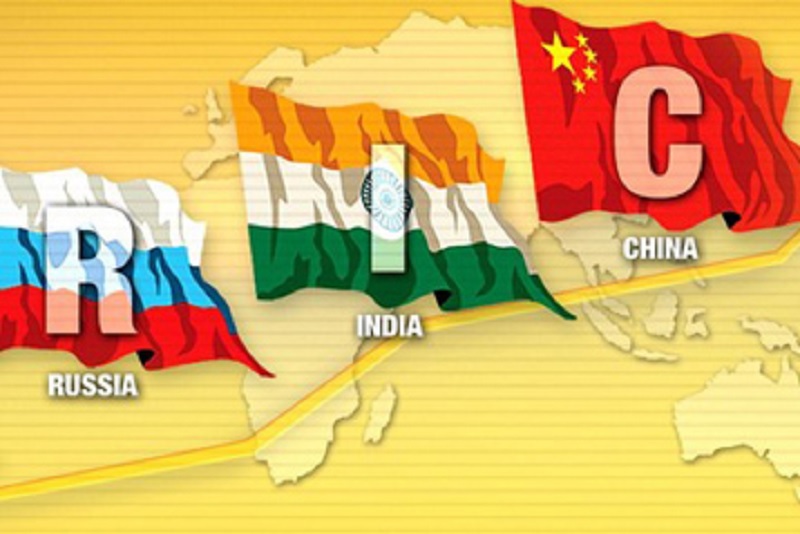Many have wondered why the US has taken to unilaterally imposing such destabilizing selective standards under the hypocritical pretext of supporting its subjectively defined “rules-based order” when none other than America itself was the architect of the prior order within which it successfully became the global hegemon and now seeks to replace.

The global systemic transition to multipolarity, which has presently reached an intermediary bi-multipolar phase of an undetermined length of time, has been extremely chaotic as evidenced by the looming food and fuel crises that have worried the entire world.
These consequences were avoidable though because they’re solely due to the US-led West’s unprecedented anti-Russian sanctions that catalyzed these outcomes that it hopes to manipulate for the purpose of delaying its fading hegemony.
Many have wondered why the US has taken to unilaterally imposing such destabilizing selective standards under the hypocritical pretext of supporting its subjectively defined “rules-based order” when none other than America itself was the architect of the prior order within which it successfully became the global hegemon and now seeks to replace.
Russian Foreign Minister Lavrov explained the reason why on Tuesday while speaking at an educational forum.
Sputnik quoted him as sharing the following insight: “The West says directly that it’s time to reform economic institutions, created by the West on the basis of mechanisms which the Americans forced the rest of the world to accept. It is on the basis of these mechanisms in global trade and finance and following their rules that China beat the West and the United States and came out on top.”
This is certainly true, but then he added another layer of analysis shortly afterwards.
According to Russia’s top diplomat, “As soon as countries began to appear which function better in these areas, according to Western rules of the game, the very centres that will form a multipolar world – China, India and other major powers, the West immediately decided to rewrite the rules.”
It’s important to point out that he praised India alongside China since this proves that Russia’s special and privileged strategic partnership with that South Asian Great Power is truly game-changing for multipolarity.
Practically nobody expected India to practice a policy of principled neutrality towards Russia’songoing special military operation in Ukraine by so bravely defying its newfound American military-strategic partner’s pressure to publicly condemn and then sanction Moscow.
This black swan event changed the course of the New Cold War as the author explained in the following three analyses that should be read by those who want a obtain a deeper understanding of the grand strategic dynamics:
* 28 April: “Korybko’s Response To Shashi Tharoor: India’s Principled Neutrality Serves Its Interests”
* 1 May: “The Wall Street Journal Is Wrong: Russia Can Indeed Depend On India”
* 2 May: “The Economist Is Wrong: The Ukrainian Conflict Actually Bolsters India’s Balancing Act”
Most of the world was already well aware of how China succeeded in employing the US-written rules of the game to its advantage at America’s unipolar expense, but few paid much attention to how India did this as well.
While it was already on the path of attempting to replicate China’s precedent in this respect, its unique contribution to the global systemic transition was that its principled neutrality towards Russia preemptively averted Moscow’s potentially disproportionate dependence on Beijing.
That in turn created the credible opportunity for Russia and India to continue jointly assembling a new Non-Aligned Movement (“Neo-NAM”) for the purpose of creating a third pole of influence in the emerging Multipolar World Order and thus break through the global systemic transition’s present intermediary bi-multipolar phase.
Put another way, it accelerated multipolarity by eroding the American and Chinese superpowers’ disproportionate influence over International Affairs.
To be sure, those two Great Powers still exert much more influence over the world than Russia, India, the EU, or anyone else does, but comparatively speaking, their sway is now somewhat less than what it otherwise would be had New Delhi not decisively intervened to preemptively avert Moscow’s potentially disproportionate dependence on Beijing that both America and China seemingly expected.
That reshaped the initial conditions of the New Cold War and therefore greatly influenced its trajectory.
It’s likely with this game-changing outcome in mind that Lavrov felt it proper to praise India alongside China for prompting the US’ panic that in turn compelled it to suddenly change the rules of the game in the most chaotic way possible.
China was capable of provoking this all by itself, but it’s crucial to remember that India recently played a pivotal role as well, which speaks to its growing global importance as a rising multipolar Great Power.
China and India are both Asian Great Powers so Lavrov is also drawing attention to how the Western-centric model of globalization hitherto upheld by the US’ old “rules-based order” is now being challenged by a new Asian-centric model pioneered by those two.
This suggests that the US’ new “rules-based order” will continue to go against their interests in pursuit of America’s hegemonic ones, which will exacerbate the New Cold War’s ideological divide between the Golden Billion and Global South.
By Andrew Korybko
Published by One World Press
Republished by The 21st Century
The views expressed in this article are solely those of the author and do not necessarily reflect the opinions of 21cir.com
